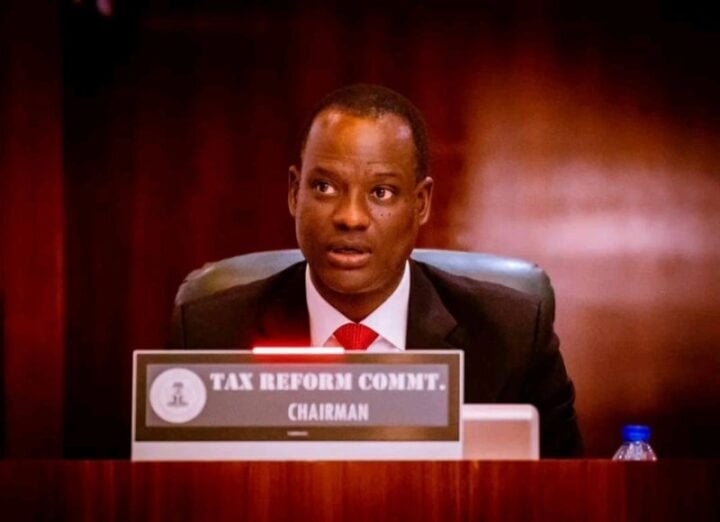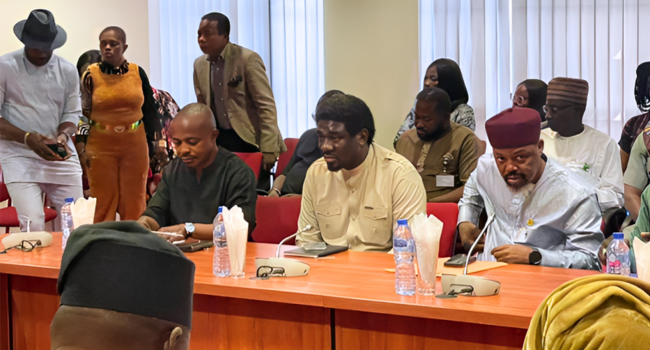The presidential fiscal policy and tax reforms has proposed that the cost of tax collection by government agencies be reduced to 1 percent.
Taiwo Oyedele, chairman of the committee, spoke on Monday during the exposure and impact assessment session held for journalists in Abuja.
According to Oyedele, Nigeria’s tax collection cost is as high as 35 percent in some states.
“We want to improve the efficiency of collection so that the cost of collecting revenues will be 1 percent or less,” he said.
Advertisement
“Nigeria’s cost of collection ranges from 4 percent to 35 percent at present.
“Agencies should not collect taxes; they don’t have the competence. For example, the FIRS collected N700 billion last year for the tertiary education trust fund (TetFund).”
Oyedele also said there are plans to restructure the Federal Inland Revenue Service (FIRS) and rename it to “Nigeria Revenue Service (NRS)”.
Advertisement
He said states’ revenue services will be departments under the proposed NRS, thereby harmonising structure and collection of taxes.
The tax policy expert also said under the arrangement, the Nigeria Customs Service (NCS) would become a department under the NRS.
“We want to establish Nigeria Revenue Service to replace the FIRS. When you say Federal Inland Revenue Service, it’s a misrepresentation of what they do,” Oyedele said.
“FIRS is not a federal government agency, it’s a federation’s agency. All taxes they collect are all shared. So let’s call it Nigeria Revenue Service.
Advertisement
“We have very good ambition for where this agency should go in the medium to long term. Number one is that we are hoping that the NCS in terms of port collection should be departments under the Nigeria Revenue Service like we have in Ghana, Kenya and South Africa, UK.
“Number two, all the agencies of government collecting taxes and levies, will stop collecting them and be collected by the NRS.
“They will use a single system, governors will still be the ones to appoint the heads of those departments. Everything will still be the same.
“In fact, we think that this is good for fiscal federalism because the board of directors of NRS will be dominated by the states because a Federation is the coming together of the states to empower the states.
Advertisement
”So the states will be the ones deciding issues affecting the Nigeria Revenue Service.”
CIT REDUCTION BY 5%
Advertisement
Oyedele said the committee also proposed the reduction of the company income tax by 5 percent.
He said the tax rate should drop from 30 percent to 25 percent, as it would go a long way to encourage businesses and investors.
Advertisement
“We are proposing that the company’s income tax rate be reduced by about 5% over the next two years. Nigeria’s CIT is one of the highest in the world. We are in the top 10,” the chairman said.
“Effectively, the corporate income tax in Nigeria is over 40 percent, and that rounds us in the top 10 globally. That is not where we want to be for a country that needs all the investments we can get.
Advertisement
“What data shows us is when CIT comes down, investments increase, and then we have more employment because people will make decisions based on how viable their business is as to where to locate it, and everything else follows.”
Oyedele said the committee also considered the need to incentivise more companies to operate in the country, create jobs, and stimulate economic activity as part of the comprehensive reforms proposed to transform the fiscal space, tax landscape, and business environment.
REDUCTION IN NUMBER OF TAXES
Speaking further, Oyedele said the committee seeks to reduce the number of taxes in the country to a single digit tax system through its proposed reforms.
He said the taxes would be shrinked to just seven, namely: income tax, value added tax (VAT), property tax, customs duties, excise duty, stamp duties, and special levy.
“Currently, Nigeria has about 60 different taxes and levies officially approved and over 200 unofficial levies across the country, which has increased business costs and adversely impacted the economy,” he said.
“The focus is to streamline them into a single digit, improving compliance and ease of tax payment.”
Oyedele said the committee’s pillars are fiscal governance, revenue transformation, and economic growth facilitation.
Add a comment






